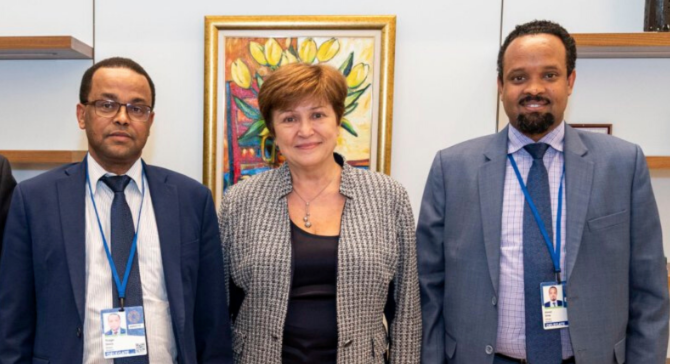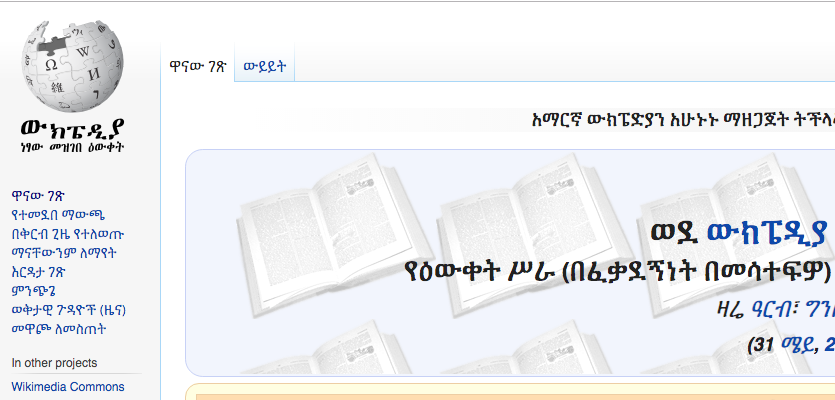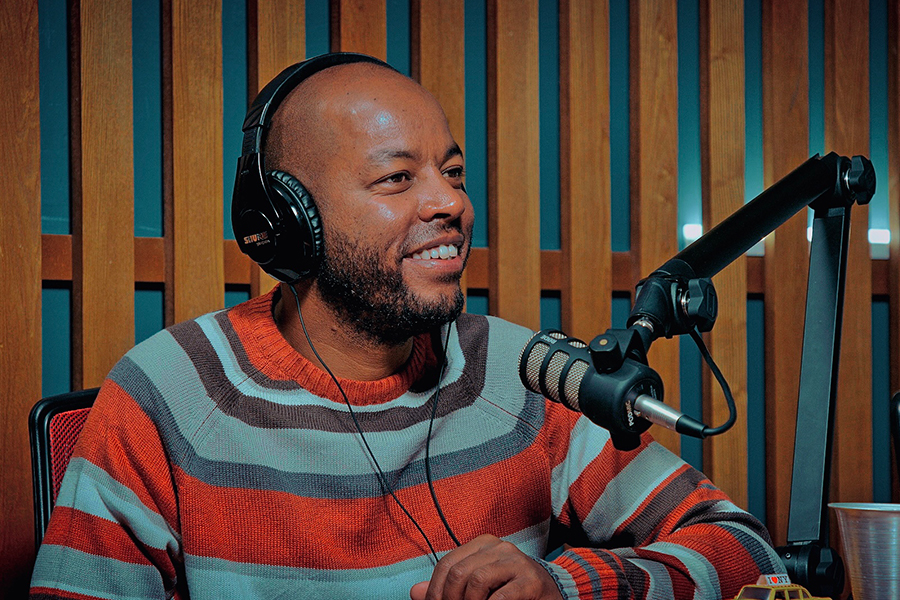
Fortune News | Dec 14,2019
Sep 10 , 2023
By Hintsa Andebrhan
In the shifting sands of geopolitics, countries must often recalibrate their strategies and alliances. This seems to be at play in the Horn of Africa, where Ethiopia appears to be altering its posture, drawing keen attention from world powers. Its leaders have seemingly embraced the BRICS bloc – a coalition of Brazil, Russia, India, China, and South Africa – in a move that could potentially signal a departure from its longstanding partnership with Western powers, primarily the United States (US).
As the country rejoices in this apparent diplomatic manoeuvring, observers are keen to analyze the layers of nuanced diplomacy unfolding in real-time. A personage of significance in this unfolding drama could be the American Special Envoy for the Horn of Africa, Mike Hammer. He recently embarked on a visit to Addis Abeba, not merely to acknowledge Ethiopia’s foray into the BRICS alliance but to discuss the ongoing internal conflicts in the Amhara and Oromia regional states and the implementations of the Pretoria accord.
Yet, astute analysts suspect a deeper agenda.
With billions of dollars in investment in aid, the United States (US) has anchored its diplomatic relations with Ethiopia firmly in mutual interests and economic partnership. The recent alignments hint at a potential paradigm shift, and it seems Washington intends to renegotiate its place in this changing scenario. Dialogue might be underway to ensure that as Ethiopian officials raise a toast to the country’s BRICS membership, they may not entirely overlook the political and economic investments fostered over the years with the U.S.
This scenario is not solely a bilateral concern. European countries, too, are following these developments with a wary eye. The BRICS bloc, often viewed as a counterpoint to Western influence globally, embodies a different approach to political and diplomatic engagements, especially in regions like the Horn of Africa. As Ethiopia gravitates towards this bloc, a response from Western allies seems to be taking shape, coordinated efforts between the U.S. and the European Union (EU) being a case in point.
This brings us to the role of individuals in shaping or sometimes destabilizing geopolitical narratives.
The Austrian economist Gunther Fehlinger recently sparked controversy with tweets that seemed to threaten countries aligning with BRICS, using the NATO banner to do so. While Fehlinger later clarified his views as personal, sceptics find it hard to separate the sentiment from the broader policy position of Western military alliances. As Chair of the European Committee for NATO Enlargement, overseeing several strategic regions, his role lends weight to this scepticism.
It seems prudent for Ethiopia’s leaders to closely monitor these developments. The country is at a strategic crossroads with significant opportunities and challenges. A geographic location of immense strategic importance, rich natural resources, and vibrant human capital make Ethiopia a sought-after partner on the global stage. Yet, these assets seem to have become a double-edged sword, as policy missteps and geopolitical tug-of-war threaten to undermine its sovereignty.
Historically, following the fall of the Mengistu Hailemariam (Col.) regime, Ethiopia’s approach to national security and sovereignty has seemingly leaned heavily on Western powers. The country appears to have relinquished some of its assertive diplomatic postures, adopting a more passive stance in its interactions with Western allies. A recalibration, therefore, seems overdue.
Prime Minister Abiy Ahmed’s popular phrase, “We live as Ethiopians and die to become Ethiopia,” encapsulates a desire for a strong and unified national identity. Yet, on the ground, the ideology of federalism on lingua-cultural faultlines continues to exert a strong influence, fragmenting society and posing significant challenges to national unity.
This geopolitical riddle, thus, demands an astute and nuanced policy response. It is imperative that Ethiopia forges a pathway that not only respects the dynamics of the new world order but also upholds the principles of sovereignty and national dignity. This might require a departure from heavily relying on multilateral financial institutions, like the World Bank and the IMF, which currently influence Ethiopia’s economic policies.
Ethiopia needs a visionary leadership that would not only preserve its sovereignty but elevate its position on the world stage. As it navigates these turbulent waters, a policy that encapsulates both the protection of its sovereign interests and the well-being of its citizens seems not just prudent but essential. Thus, the call of the hour is for a leadership that embodies resilience, foresight, and an unwavering commitment to Ethiopians' dignity, come rain or shine.
PUBLISHED ON
Sep 10,2023 [ VOL
24 , NO
1219]


Fortune News | Dec 14,2019

My Opinion | May 18,2024

Fortune News | Sep 30,2023

Radar | May 25,2019

Radar | Jul 08,2023

Sunday with Eden | Apr 10,2021

Commentaries | Jan 12,2019

Fortune News | Jun 01,2019

Editorial | Feb 01,2020

Featured | Sep 08,2024

Photo Gallery | 180409 Views | May 06,2019

Photo Gallery | 170610 Views | Apr 26,2019

Photo Gallery | 161655 Views | Oct 06,2021

My Opinion | 137279 Views | Aug 14,2021

Dec 22 , 2024 . By TIZITA SHEWAFERAW
Charged with transforming colossal state-owned enterprises into modern and competitiv...

Aug 18 , 2024 . By AKSAH ITALO
Although predictable Yonas Zerihun's job in the ride-hailing service is not immune to...

Jul 28 , 2024 . By TIZITA SHEWAFERAW
Unhabitual, perhaps too many, Samuel Gebreyohannes, 38, used to occasionally enjoy a couple of beers at breakfast. However, he recently swit...

Jul 13 , 2024 . By AKSAH ITALO
Investors who rely on tractors, trucks, and field vehicles for commuting, transporting commodities, and f...

Nov 1 , 2025
The National Bank of Ethiopia (NBE) issued a statement two weeks ago that appeared to...

Oct 25 , 2025
The regulatory machinery is on overdrive. In only two years, no fewer than 35 new pro...

Oct 18 , 2025
The political establishment, notably the ruling party and its top brass, has become p...

Oct 11 , 2025
Ladislas Farago, a roving Associated Press (AP) correspondent, arrived in Ethiopia in...

Nov 2 , 2025
The National Bank of Ethiopia (NBE) has scrapped the credit-growth ceiling that had s...

Nov 2 , 2025 . By SURAFEL MULUGETA
The burgeoning data mining industry is struggling with mounting concerns following th...

Nov 2 , 2025 . By YITBAREK GETACHEW
Berhan Bank has chosen a different route in its pursuit of a new headquarters, opting for a transitional building instea...

Nov 2 , 2025 . By BEZAWIT HULUAGER
Nib International Bank S.C. has found itself at the epicentre of a severe governance...